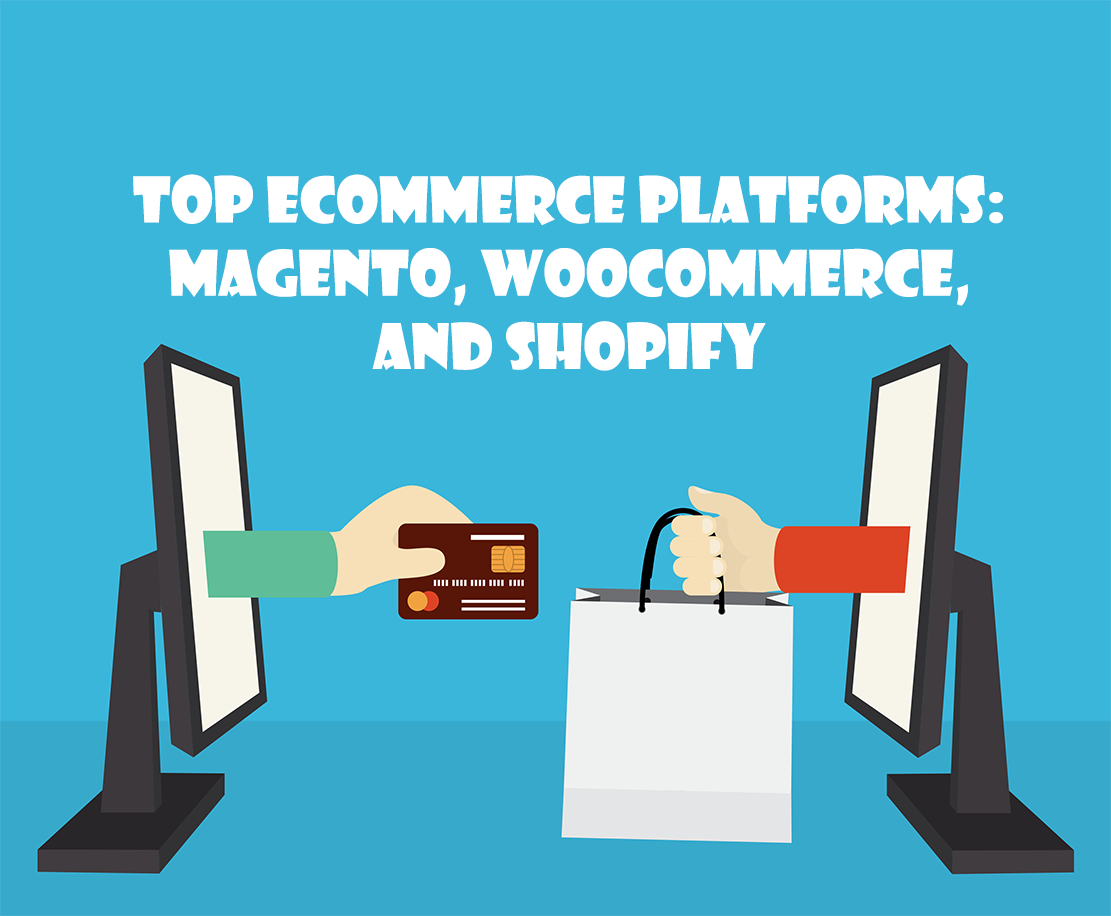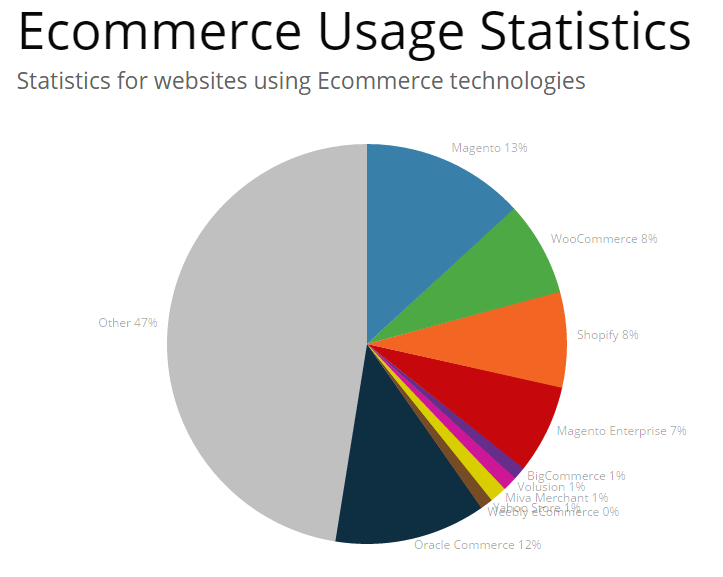
By Amanda Watkins, Marketing Communications Manager at InteractOne
Top eCommerce platforms, which is best for you?
We chose to compare and contrast the top eCommerce platforms by market share for the top 10k sites based on data from BuiltWith.

Starting an eCommerce business can be exciting and rewarding. One of the first important steps is deciding on the type of platform to use. When it comes to building, managing and running your website, you want to choose the right platform that will propel you to success, not a failure – especially if financial resources are limited.
As a long time senior Magento partner, we have worked on a lot of websites for many different levels of companies. While Magento is our platform of choice, we understand that it isn’t for everyone and every business. Whether you are just starting out or are ready to take your business to the next level it’s important to understand what you are getting into.
According to BuiltWith, Magento, WooCommerce, and Shopify are top platforms by market share for the top 10k eCommerce sites.
All three platforms are chosen by top companies, but which is the top eCommerce platform for you?
Magento
Magento Community and Magento Enterprise editions are dominating the eCommerce platform community with a combined total of 20%. Free to download for the community edition, open source, powerful and scalable, it’s no surprise that Magento is the most used eCommerce platform worldwide.
Magento Pros:
- Feature-rich, out-of-the-box with flexible options for nearly all languages and currencies
- Thousands of extensions are available thanks to the flexible API architecture
- Manage multiple stores from one admin
- Supportive Community with a slew of developers and partners ready to build and solve problems
- In-depth training available to help you get started
- Two editions are available, community for small businesses and enterprise for larger merchants
Magento Cons:
- Magento can be very complicated for a non-tech savvy merchant
- Development can get expensive, especially for custom work and qualified help
- Self-hosted, meaning it requires a Magento hosting provider
WooCommerce
Gaining a lot of attention with 8% of the eCommerce platform community, WooCommerce is quickly becoming one of the most used eCommerce platforms. Different from Magento and Shopify, WooCommerce is a plugin for WordPress and easily integrates into any WordPress site. Free to install, user-friendly, familiar and open source it’s no surprise WooCommerce is gaining popularity.
WooCommerce Pros:
- Easily integrates with WordPress
- Easily customizable with plugins
- Developmental resources widely available via WordPress developers
- Built-in blogging for easy Marketing and SEO
- User-friendly interface
WooCommerce Cons:
- Lacks scalability
- Basic features require plugins that are becoming more costly as the platform gains popularity
- While aspects of WordPress are simple, plugin additions can get complicated
- Self-hosted, meaning it requires a hosting provider
Shopify
With also 8% of the eCommerce market share comes Shopify. Shopify is notably different from Magento and WooCommerce in that it is a SAAS (software as a service) platform – not open source or downloadable (the code is proprietary). Designed for ease of use, Shopify is a one-stop-shop supplying hosting, set-up and customer support, making it an easy choice for busy or less tech-savvy merchants.
Shopify Pros:
- Easy to use and set up
- Hosting provided
- Technical support provided
- Comes installed with many basic payment options
Shopify Cons:
- A commercial product requiring monthly fees
- Inventory restrictions dependent on your payment plan or level
- A limited number of available free themes
- Lack of flexibility – Limited number of available add-ons
Which is best?
All three are top eCommerce platforms and have their pros and cons. The key is choosing which one you can live with, or more importantly, can afford. Magento is a market leader for a reason. It’s scalable, customizable and ready for global eCommerce. Although potentially pricey for smaller companies expecting a customized shop, Magento is a great investment for businesses whose growth is dependent on a flexible and powerful platform. WooCommerce’s easy integration into WordPress is worth noting. Bloggers turning merchants with basic tech savvy could likely profit from WooCommerce. However, WooCommerce merchants are discovering increasing prices with the increasing popularity of the platform. Finally, Shopify provides real benefits for smaller companies with all-inclusive pricing for hosting, support and set up and is a great choice for the busy or less tech-savvy merchant. Nevertheless, successful merchants could quickly outgrow the platform and need to migrate to a more scalable platform.